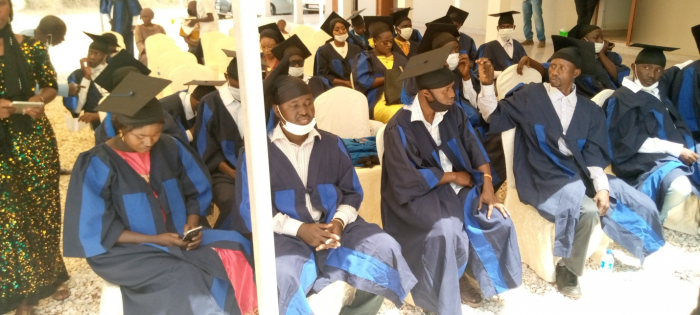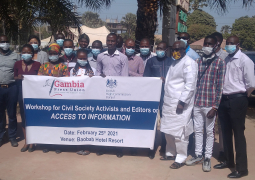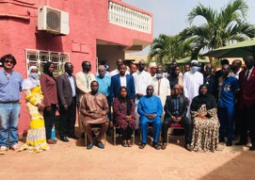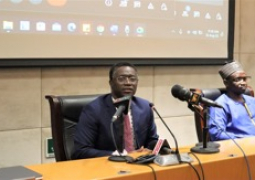
The ceremony was held at the Department of Water Resources Training School, Banjul International Airport in Yundum.
Lamin Mai Touray, Director Water Resources thanked Government and partners for not only providing the requisite financial support for the training but also for improving the provision of weather and climate early warning services in The Gambia.
He said the training was the first conducted in The Gambia under the umbrella of the Memorandum of Understanding between the Department of Water Resources of The Gambia and Nigeria Meteorological Agency (NIMET).
He said the overall aim of the training was to build the capacity of Meteorological personnel involved in the provision of Meteorological services by providing them with knowledge in atmospheric phenomena and process, together with skills that are related to the application of this knowledge.
Professor Mansur B. Matazu, Director General Nigerian Meteorological Agency said life is becoming well certain in Nigeria after some years of aviation operations.
Senator Hadi Sirika, Minister of Aviation, Federal Republic of Nigeria commended Gambia Government for taking the initiative to conceive and develop the idea that led to the graduation.
He stated that the training underscores the importance attached to contributions of meteorology to sustainable socio-economic development as well as safety and social wellbeing of citizens of the country.
He stressed that for a successful and sustainable socio-economic development of any community or nation, capacity development, regardless of limited resources, must be emphasized.
Minister of Fisheries and Water Resources James F.P. Gomez said the challenge of improving the resilience of communities to climate vulnerabilities, risks and disasters is a key element in the strategies and solutions envisioned by the Government of The Gambia.
He added that despite support from WMO and other partners, the National Meteorological and Hydrological Services (NMHS) of The Gambia is currently confronted with challenges oftechnical capacity, lack of adequate data collection equipment, transmission and management of the data among others.
“Weather, climate- and water-related hazards such as floods, drought, dry spells, wind and dust storms constitute around 90% of the natural disasters in The Gambia,” he revealed.
He requested Government’s continued support in order to provide weather and climate related information, particularly Early Warning Services (EWS) to the population and other stakeholders such as researchers and universities with a view to mitigating the impacts of weather-related hazards associated with the various socio-economic sectors.
Read Other Articles In National News





